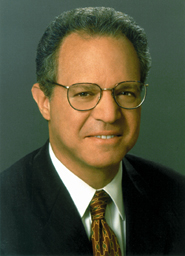Options industry officials vow to make their voices heard in the debate over short-sale regulation.
Speaking at an industry conference in Florida earlier this month, options exchange executives said the drive to promulgate new short-sale regulations is misguided and unnecessary. They promised to make their cases in Washington and exhorted others in the industry, especially market makers, to do the same.
“This is the most important issue facing the options industry,” Bill Brodsky, chairman and chief executive officer of the Chicago Board Options Exchange, told journalists in Weston, Fla., at the annual Options Industry Conference. “We will be very active over the next few months in Washington in dealing with the short sale proposal.”

In April, the Securities and Exchange Commission put out a 273-page proposal outlining five possible short sale rules. The proposal comes in the wake of pressure from Congress to bring back the “uptick” rule that was rescinded by the SEC in 2007.
In general, exchange officials and market makers contend any rule is unnecessary and would be ineffective. They offer up the stock market crash of 2008 as evidence. “Where is the data that supports the concept?” Ben Londergan, co-CEO of options market maker Group One, asked Traders Magazine. “They put in outright bans [on short selling] last September. What did that accomplish? Financials did not fair all that much better than the rest of the marketplace.”
Indeed a study conducted by the SEC’s Office of Economic Analysis found that short selling played no role in the drop in prices prior to the short sale ban.
Other exchange officials echo Brodsky’s comments. They maintain the SEC’s proposal is driven by politics and not hard evidence. “I think it’s very important that everybody in this room come out in force and comment on the SEC’s proposal and not just sit back and wait for this to be resolved in Washington,” Gary Katz, president and CEO of the International Securities Exchange, told conference attendees. “It will not be resolved if we do not participate in the dialogue.” His comments drew applause.
Many in the options industry are particularly unhappy with the limited relief given to market makers in the proposal. Only one of the five proposals contains an exception for market makers. “There is nothing really specific for options market makers,” Brodsky said. “There is one passing reference in one proposal, but nothing of consequence.”
The five proposals include a revival of Rule 10a-1, or the uptick rule; a bid test rule; a circuit breaker combined with an uptick rule; a circuit breaker combined with a bid test rule; and a circuit breaker combined with an outright ban on short selling. Only the latter includes an exemption for market makers.
According to Elizabeth King, an associate director in the SEC’s Division of Trading & Markets, who has responsibility for options issues, the regulator did not include an exception for market makers in its price test proposals for two reasons. First, there was no exception in previous SEC short sale rules. Second, the SEC feared an exception might “undermine the goals of the proposed short sale price restrictions,” particularly if the rules “had the effect of helping prevent declines in securities prices and restore investor confidence.”
King was speaking at the OIC conference. She noted the SEC is open to a discussion of the issue of market maker exceptions.
Brodsky told reporters SEC Commissioners “understand the important role of options market makers.” He added: “I don’t look at the absence of an exception as a sign they are not going to include one. We were told by the SEC they were purposely not putting it in. I think they are waiting for comments to come in.”
Brodsky noted there are hundreds of options series for which market makers are necessary. “The SEC demands that we offer markets in all these series,” Brodsky said. “So, if you are imposing obligations on market makers, you have to give them some flexibility.”
Many in the options and cash equities businesses expect the SEC to approve a circuit breaker tied to either a bid test rule or an outright ban. If a particular stock were to drop by, say, 10 percent, then traders could not short except on an upbid or would be preventing from shorting altogether for the rest of the day. Industry insiders also expect an exception for both cash equities and options market makers to accompany any rule.
Tom Gira, an executive vice president at the Financial Industry Regulatory Authority, is betting on a circuit breaker plus a ban and a market maker exception. “If you do have that kind of ban,” Gira said on an OIC panel, “it would be really hard to operate without a market maker exemption. So, I think that is why they put it in there.”
Market maker Londergan agreed. “There is no way you will make markets if you are banned from short selling,” he told Traders Magazine.




